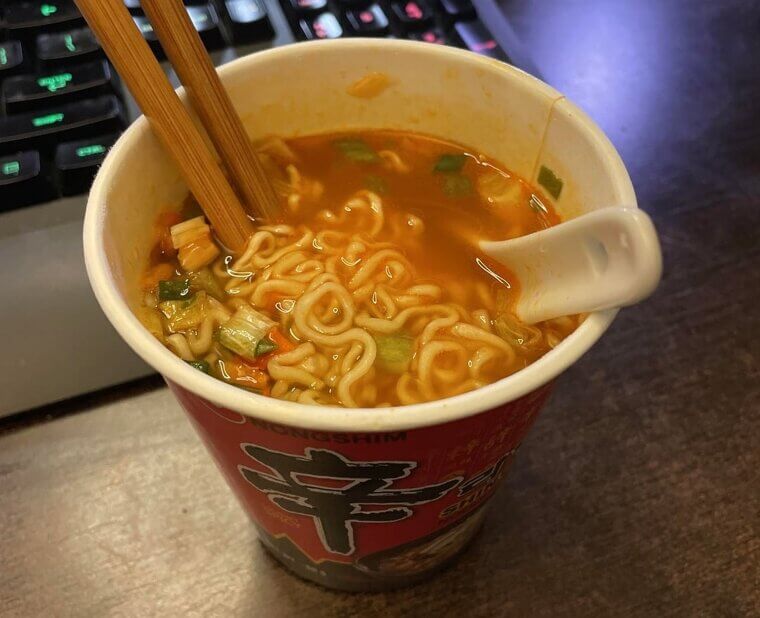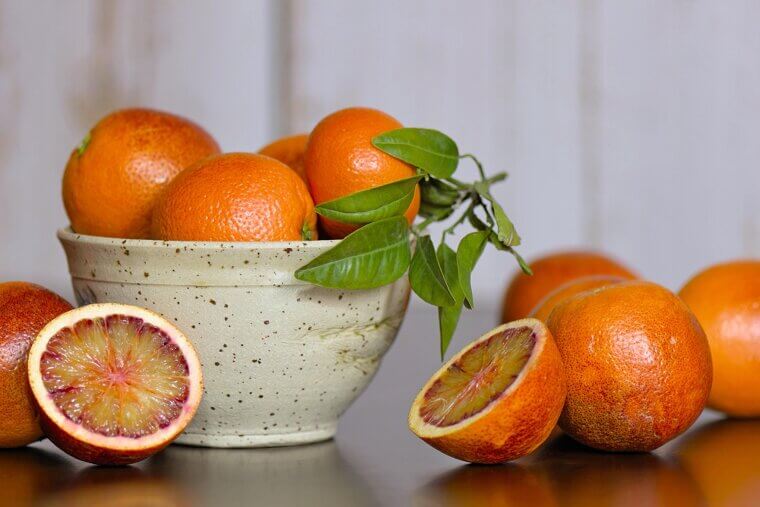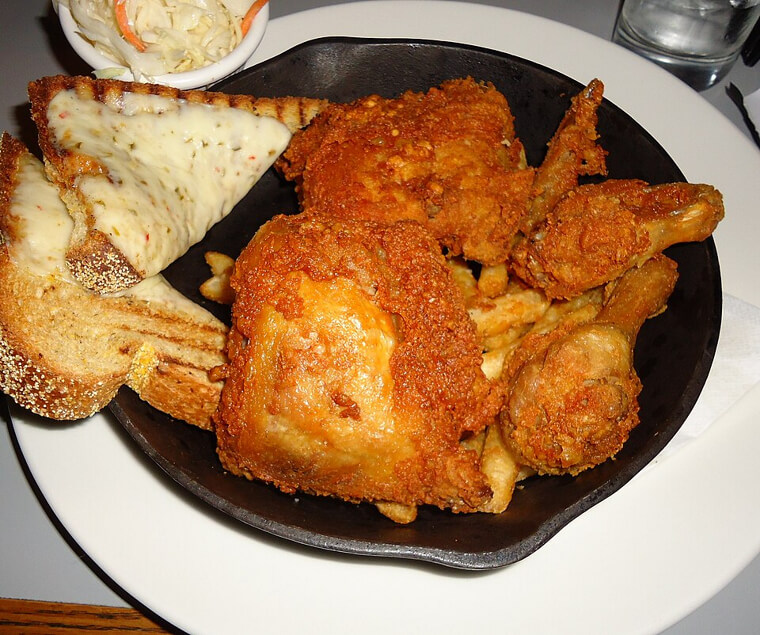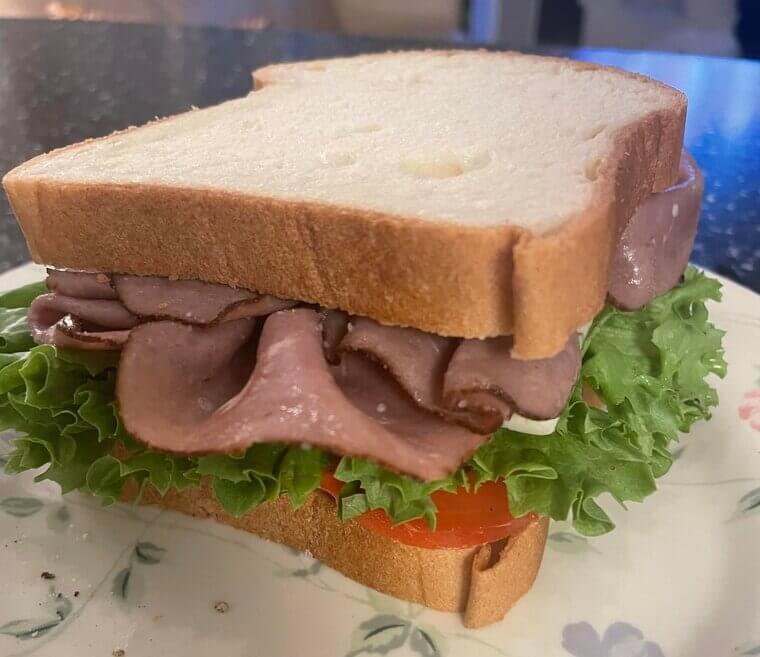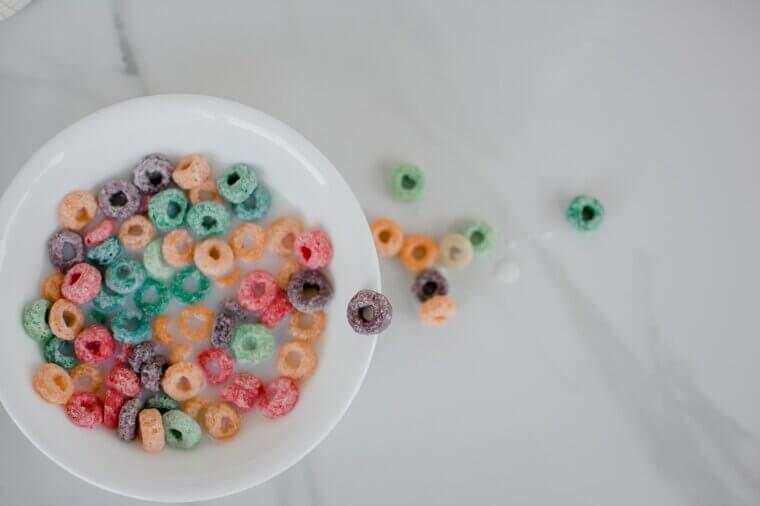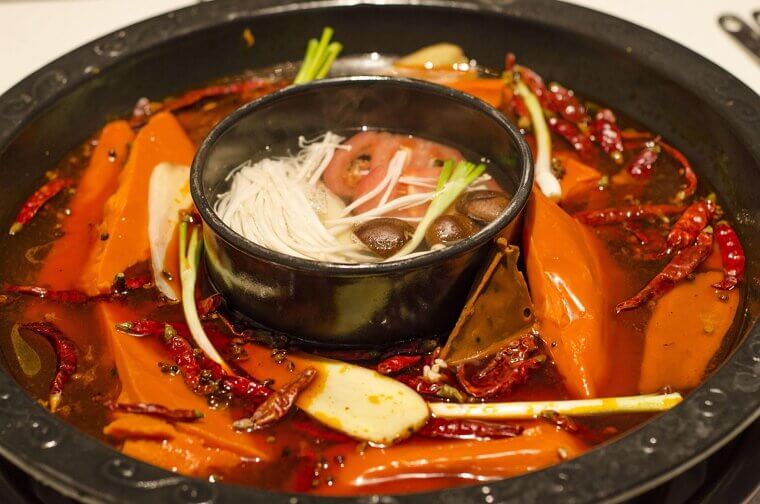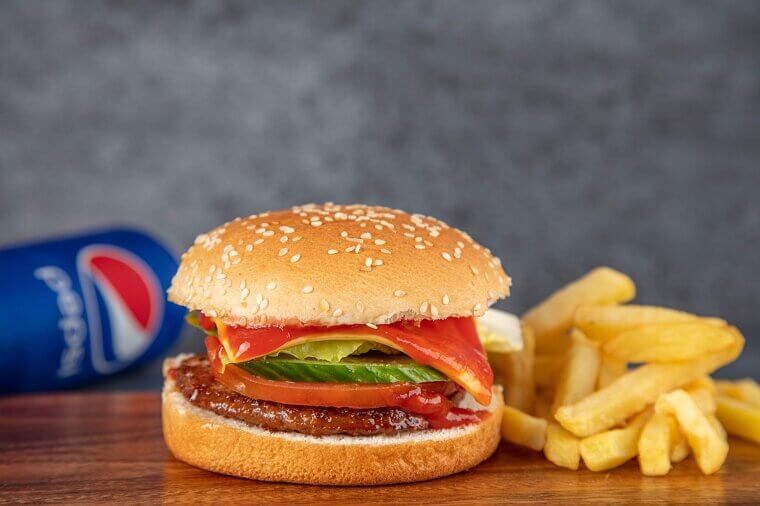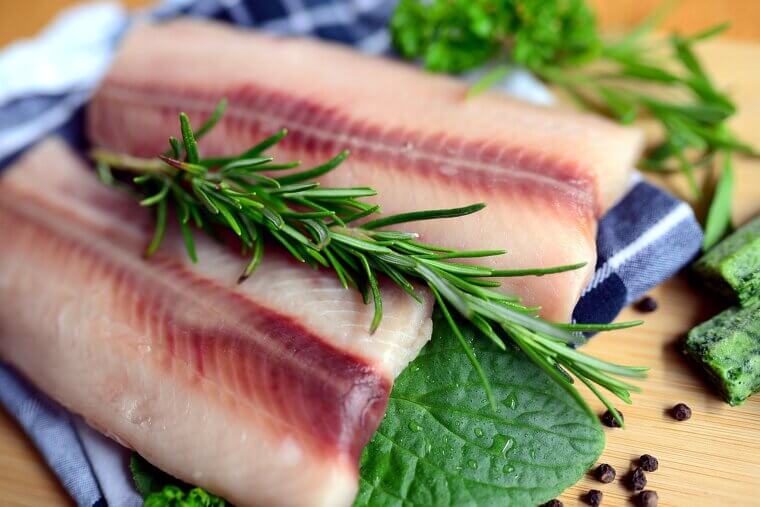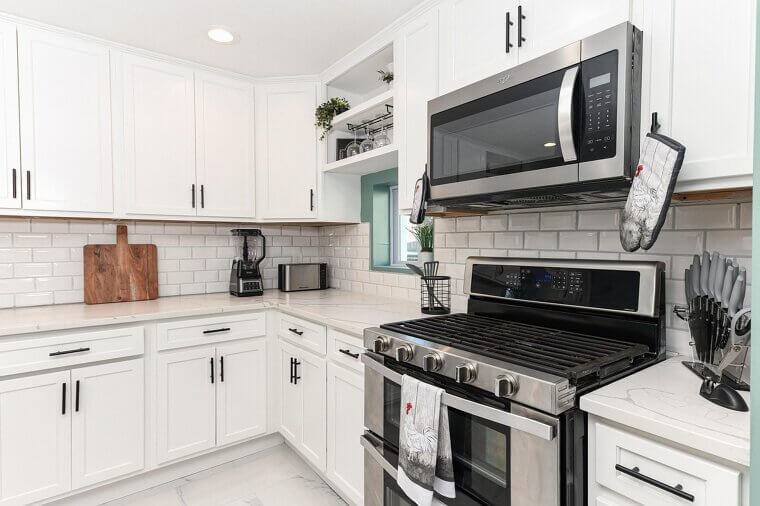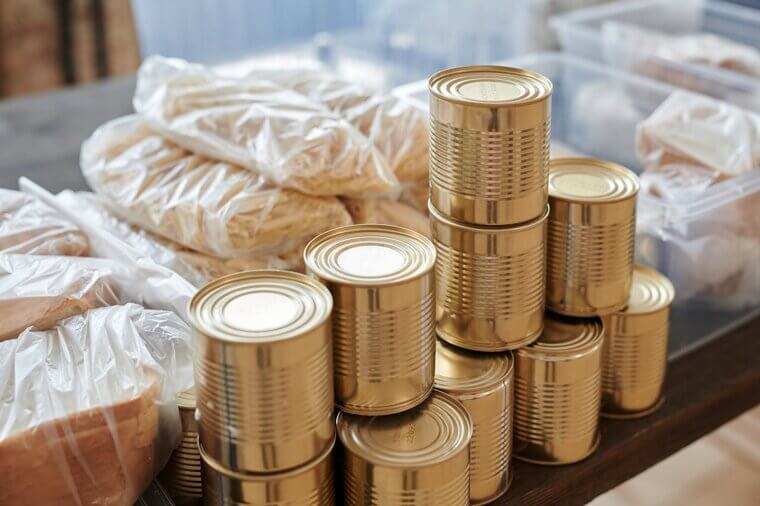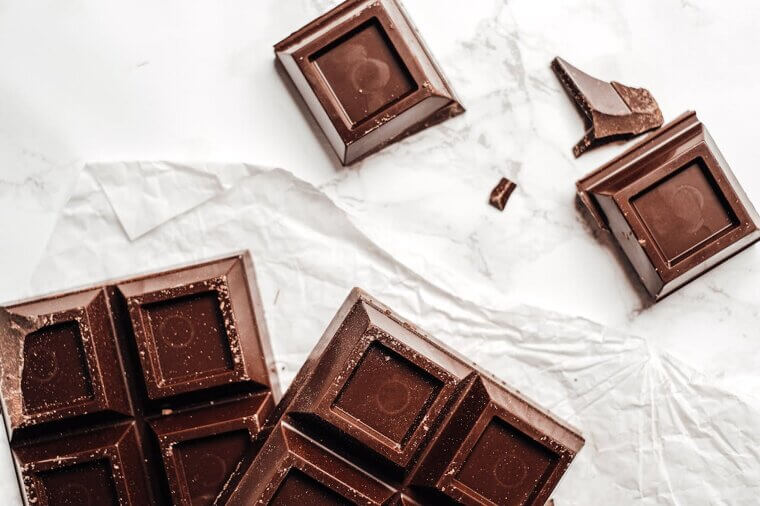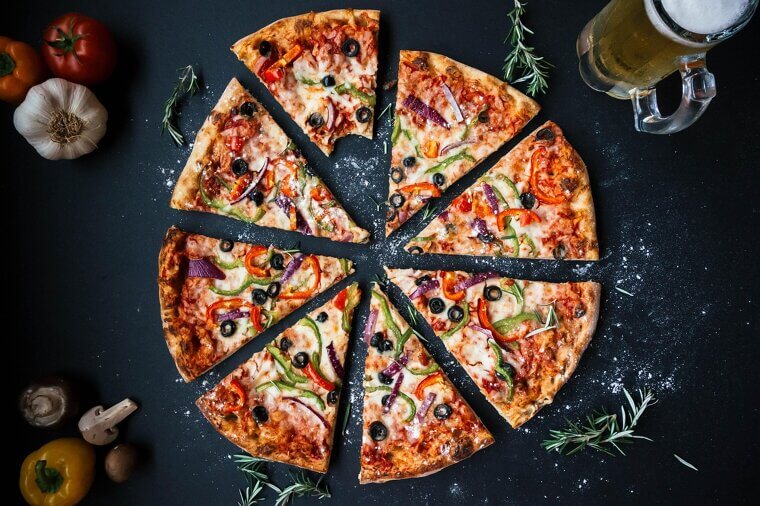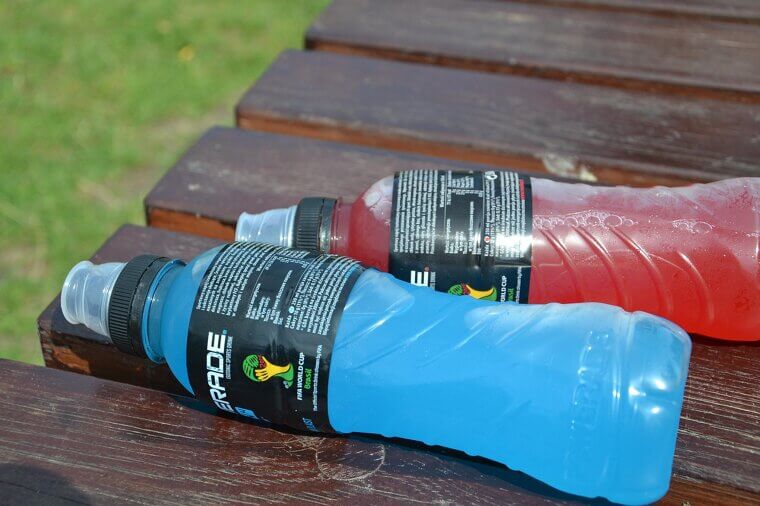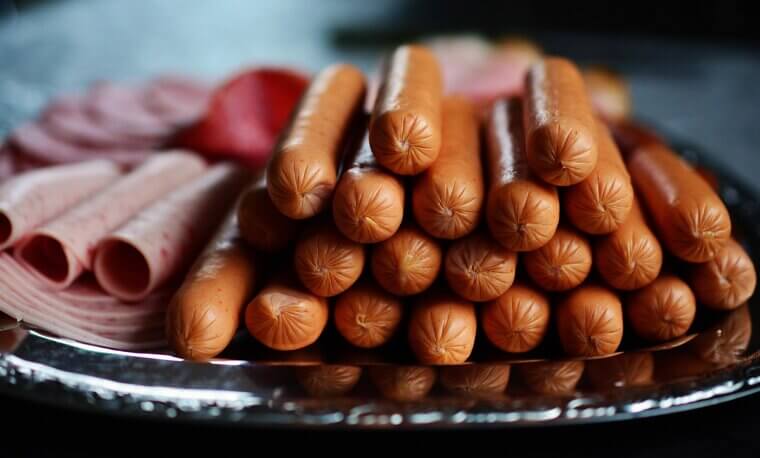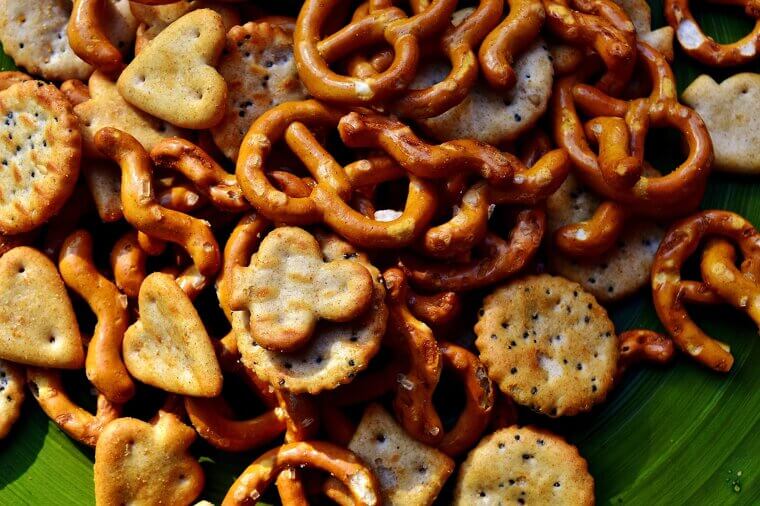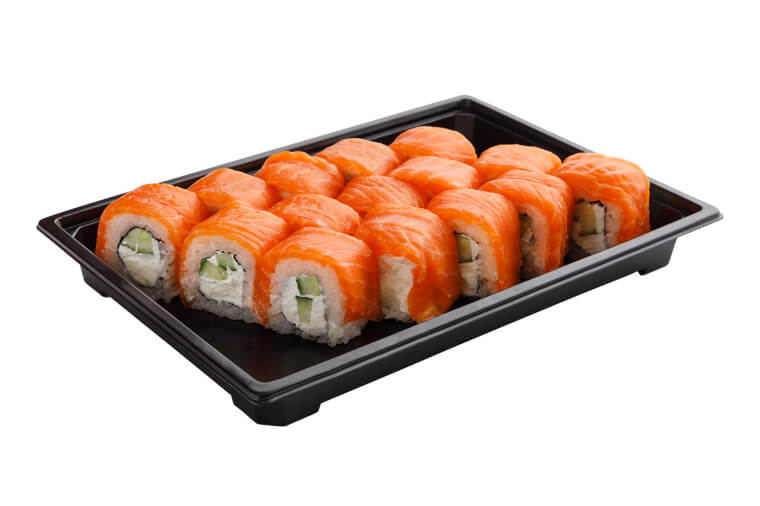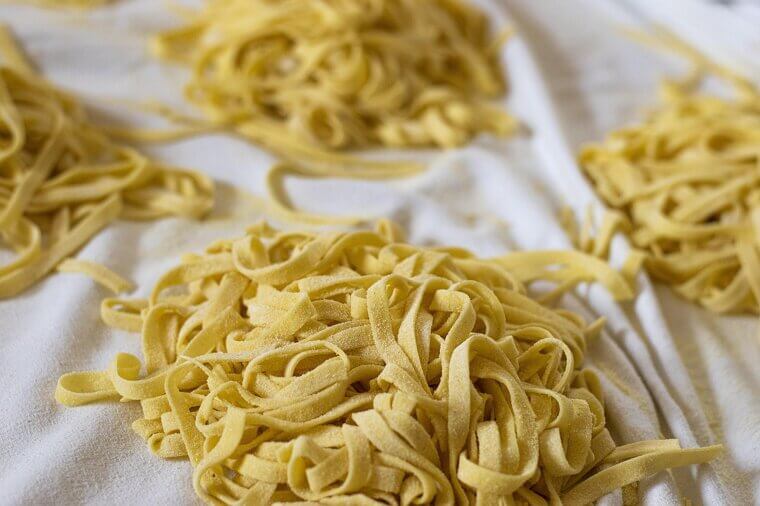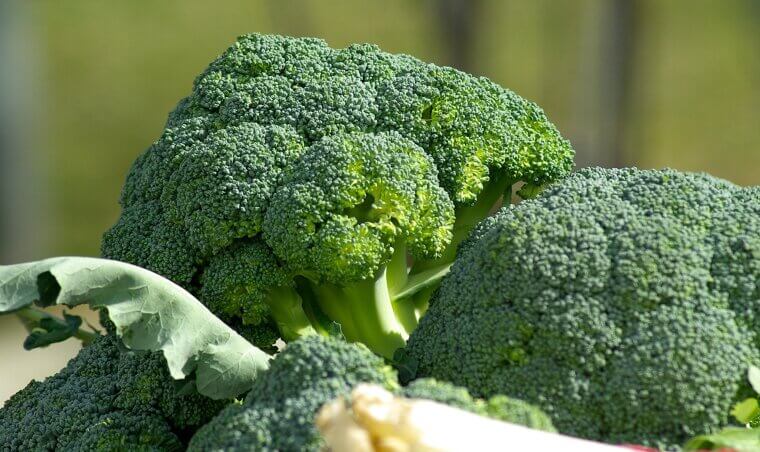Instant Ramen
We’ve all had instant noodles a time or two, especially if money is tight or there’s just not enough time to cook a proper meal. But instant ramen and similar quick-cooking noodles are notorious for their high sodium levels, which can wreak havoc on your long-term health. Too much sodium in your diet can result in high blood pressure and eventual heart issues.
Citrus
The acidity of citrus fruits like oranges, tangerines, and grapefruit can cause heartburn if eaten too close to bedtime. Therefore, even though these fruits are good for you, you might want to steer clear of dinner dishes with large quantities of citrus in them.
Fried Chicken
Fried foods, such as fried chicken, are high in saturated fat. This causes them to digest more slowly, which can lead to you feeling heavy and bloated afterward. Most varieties of fried chicken are also very high in sodium. Eating foods that are cooked using high-heat cooking methods (like frying) can also lead to inflammation.
White Bread
White bread, while fluffy and delicious, is bread that's had all the nutrients stripped out of it during the refinement process. As such, it offers little in the way of nutritional value and also won't fill you up very much. When it comes to what bread to eat with your dinner, whole wheat and sprouted grain breads are much better for you.
Breakfast Cereals
Breakfast for dinner can be satisfying, but try to steer clear of sugary breakfast cereals for your evening meal. Many breakfast cereals are high in sugar and refined grains and low in helpful nutrients. This means that you’re unlikely to stay full for very long, even if the cereal itself is delicious.
Spicy Foods
Spicy foods like salsas and curries can be delicious, but having them too late in the evening can cause problems. Eating spicy foods before bed can lead to indigestion and acid reflux, which can disrupt your sleep. Because of this, it’s generally best to avoid spicy foods for dinner (especially if you’re prone to heartburn).
Fast Food Burgers
It can be tempting to swing through a drive-thru for dinner, especially at the end of a long day. But not only are fast-food burgers high in sodium and saturated fat, many of them are also full of additives and preservatives. So while a fast food burger might be fine as a guilty treat every once in a while, you should avoid having them as a dinner staple.
Tilefish
In general, seafood is both delicious and healthy. However, tilefish specifically tend to have very high levels of mercury. Because of this, it’s best to steer clear of this fish (or at least limit your consumption of it). Grouper is often considered a good substitute for tilefish thanks to its similar flavor profile.
Microwave Dinners
Most microwave dinners are loaded with sodium and preservatives, so eating them on a regular basis can lead to long-term health consequences like high blood pressure and heart disease. Inconsistent heating can also increase your risk of food poisoning if a microwave meal isn’t thoroughly cooked before consumption. That being said, there are healthy frozen dinners out there! Just be sure to read the ingredients label to make sure that your meals have healthy ingredients and aren’t too high in sodium.
Alcohol
Sometimes alcoholic beverages can help you fall asleep after a long day and a hearty meal, but in many cases, alcohol also has a negative impact on sleep quality. Alcohol can also increase feelings of stress or anxiety due to the way alcohol can trigger the release of extra cortisol, a stress hormone. Because of these factors, you should consume alcohol in moderation during dinner. A single glass of wine with your meal is perfectly fine, but be sure not to go overboard!
Canned Soups
Canned soups can be convenient, but many brands are high in sodium and also contain preservatives to extend shelf life. If your soup is severely out of date or the can is damaged in a way that might have compromised the internal seal, there are also spoilage concerns to consider. Instead, you might want to consider fresh or frozen soups (or even make your own!).
Chocolate
We all love a sweet treat now and again, but it's important to avoid having dessert for dinner. Not only does most chocolate contain a lot of sugar, but chocolate bars and chocolate desserts also contain caffeine. Even small amounts of caffeine can affect your ability to fall asleep and stay asleep, so it's best to avoid chocolate around dinner time.
Pizza
Pizza is one of the most popular dishes out there, thanks to both its versatility and relatively easy availability. But if you're prone to acid reflux or heartburn, pizza is actually one of the worst foods you could have for dinner. The acidity of the tomato sauce (particularly when combined with garlic, red pepper flakes, and other common pizza spices) can trigger heartburn and acid reflux, disrupting your sleep and causing discomfort.
Sports Drinks
These beverages might be good for replenishing electrolytes in a hurry, but they shouldn't be used as a meal replacement. While these drinks can help give you a boost when you need it, they don’t have the nutrients you would get from real food. The high levels of fructose found in most sports drinks can also lead to a fatty liver.
Processed Meats
Processed meats like cold cuts and most hot dogs are high in salt, which can have a long-term impact on heart health and blood pressure. In the short term, high-salt foods can increase water retention, leading to feelings of bloating. So while a hot dog or bologna sandwich might be fine every once in a while, you should avoid eating processed meats for dinner on a regular basis.
Snack Foods
We've all had days when we feel more like grazing than sitting down to a proper meal. However, it's important to remember that in order to stay healthy, we need to eat full meals that contain items from a variety of food groups. Snack foods like potato chips and pretzels may satisfy our hunger in the moment, but they don't fill us up for long. Additionally, most snack foods are high in salt. Too much salt can raise blood pressure, so it's important to eat certain snacks in moderation.
Store-Bought Sushi
Fresh sushi can be a healthy and satisfying meal, but be careful about buying it from a regular grocery store! Some stores have in-house sushi chefs who make everything fresh, but others don't. And since most sushi involves raw seafood, it's important to make sure you're getting fresh product and not something that could make you sick.
Pasta
Most pastas are high in refined carbohydrates. Because of their composition, eating large amounts of these pastas can cause a spike in blood sugar levels. Therefore, it’s important to have well-balanced meals that also include protein and vegetables. Alternatively, try eating whole-grain pasta or even fortified pasta (which has nutrients added to compensate for what’s lost in the refining process).
Cruciferous Vegetables
Cruciferous veggies like broccoli and kale can be very beneficial for you because they're high in fiber. But when eaten raw, that same high fiber content can actually lead to gas and bloating as your digestive system works to break these veggies down. Because of this, it's better to eat your dinnertime veggies steamed or sauteed rather than raw, since this makes digestion easier.
Caffeinated Drinks
If you're a true coffee lover, it can be tempting to have a cup with your evening meal. And in some cultures, having coffee after dinner is actually a perfectly normal tradition! But if you’re not accustomed to having caffeine in the evening, it can disrupt your sleeping habits. Having coffee or caffeinated tea too close to bedtime can cause you to have trouble falling asleep, which is why it’s not generally recommended to have coffee during or even after dinner unless your body is used to caffeine at that time of night.

